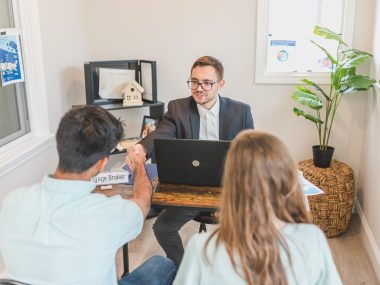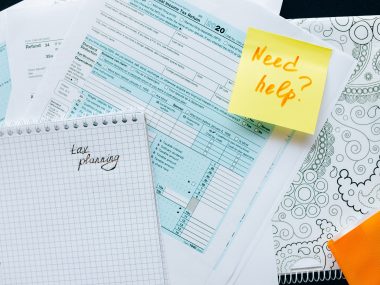Reverse mortgages are a type of loan available to senior citizens who own their home and are looking for a way to supplement their retirement income. The loan allows them to access the equity they have built up in their home while still living in it and enjoying the benefits of ownership. While reverse mortgages can be a source of much-needed additional funds for seniors, it is important to ask the right questions before deciding if a reverse mortgage is the right decision for you.
Reverse mortgage is a financial tool that allows homeowners to access the equity in their homes without having to sell their home or make regular payments. The money received through a reverse mortgage can be used to supplement retirement income, pay off existing debt, fund home improvements, or for almost any other purpose. It is an increasingly popular option for seniors who are looking to maximize their retirement income and remain in their home.
There are several advantages to reverse mortgage, including:
- Financial Security
- Flexibility
- No Payments
- Debt Consolidation
- Estate Planning
Below are 5 Important Questions you must ask before opting for Reverse Mortgage:
- What are my eligibility requirements?
Any person aged 62 and older who owns their home can apply for a reverse mortgage. Further, the home must be your primary residence and the loan must be used for that purpose. Additionally, you must also meet certain financial requirements such as having enough income to cover ongoing property costs.
- What is the maximum loan amount?
The maximum loan amount you can receive depends on several factors, including the value of your home, your age, and current interest rates. Generally, you can borrow more money depending on how older you are. However, the amount you can borrow is limited by the value of your home and your financial situation.
- What are the costs associated with a reverse mortgage?
Reverse mortgages come with costs, including origination fees, closing costs, mortgage insurance premiums, and servicing fees. It is important to understand the costs associated with a reverse mortgage before agreeing to the loan.
- What are the terms of the reverse mortgage?
The terms of a reverse mortgage may vary depending on the lender, but typically the loan does not have to be paid back until the homeowner sells or permanently moves out of the home. Additionally, the loan must be repaid in full upon the death of the homeowner or if the home is no longer the primary residence.
- What are the risks of a reverse mortgage?
Reverse mortgages can be a great resource for seniors, but they do come with risks. These include the potential for the loan to exceed the value of the home, leaving the homeowner with a debt they cannot pay back. Additionally, reverse mortgages can be expensive and may require the homeowner to pay additional fees.
Reverse mortgages can be a great resource for seniors, but it is important to understand the risks and costs associated with the loan before making a decision. Asking the right questions before opting for a reverse mortgage can help ensure you make the best decision for your financial situation.
==========================================================================
6
7 Things You Most Likely Didn’t Know About Reverse Mortgage
Introduction
Reverse mortgages are a preferred method for senior citizens to access the equity in their homes. While the concept is not new, there are still many misconceptions about how reverse mortgages work.
What is a reverse mortgage?
A reverse mortgage is a financial product that allows seniors to access the equity in their home without having to make regular payments to the bank. It differs from a traditional mortgage in that it allows the borrower to receive a lump sum payment or a series of payments, rather than making regular payments to the lender. Reverse mortgages are a popular option for retirees who need extra money for health care, home repairs, or other needs.
Reverse mortgages are typically available to homeowners who are age 62 or older. To qualify, the homeowner must have paid off the existing mortgage or have enough equity in their home. The homeowner also must have sufficient income to cover ongoing property taxes, insurance, and other related costs.
When a homeowner takes out a reverse mortgage, they receive a lump sum payment or a series of payments from the lender. The amount of money received depends on the homeowner’s age, the value of the home, and the amount of equity in the home. The payments are not taxable and the homeowner does not have to make regular payments to the lender. However, the homeowner must use the money received from the reverse mortgage for approved expenses, such as home repairs, health care costs, or other needs.
Here are seven things you may not know about reverse mortgages that may help you make an informed decision about whether one is right for you.
- Reverse Mortgages Are Not Just for Seniors
Contrary to popular belief, reverse mortgages are not just for seniors. In fact, anyone who is 62 years or older and owns a home can qualify for a reverse mortgage. This means that younger people who have already retired can also take advantage of a reverse mortgage.
- The Money Received From a Reverse Mortgage Is Tax-Free
Unlike other types of loans, the money received from a reverse mortgage is not taxable. This is because the money is considered a loan and not income.
- A Reverse Mortgage Does Not Require Monthly Payments
Unlike a traditional mortgage, a reverse mortgage does not require any monthly payments to be made. Instead, the loan is repaid when the borrower moves out of the home or passes away.
- A Reverse Mortgage Can Be Used to Pay Off Existing Debt
One of the benefits of a reverse mortgage is that it can be used to pay off existing debt. This can be beneficial for seniors who have accumulated debt over their lifetime and want to reduce the burden of making payments.
- A Reverse Mortgage Can Be Used to Make Home Improvements
Reverse mortgages can also be used to make home improvements. This can be beneficial for seniors who want to make their home more comfortable or to increase the value of their home before they sell it.
- A Reverse Mortgage Can Be Used to Supplement Retirement Income
One of the main reasons many seniors take out reverse mortgages is to supplement their retirement income. The money received from a reverse mortgage can be used to cover living expenses such as medical bills, property taxes, and other expenses.
- A Reverse Mortgage Can Be Used to Leave an Inheritance
Finally, a reverse mortgage can be used to leave an inheritance to children or grandchildren. By taking out a reverse mortgage, the borrower can ensure that their family is taken care of after they have passed away.
Reverse mortgages can be a great way for seniors to access the equity in their homes and to supplement their retirement income. However, it is important to understand all of the details of a reverse mortgage before taking one out. By understanding these seven things you most likely didn’t know about reverse mortgages, you can make an informed decision about whether one is right for you.




5 comments
Can you be more specific about the content of your article? After reading it, I still have some doubts. Hope you can help me. https://www.binance.com/kz/register?ref=RQUR4BEO
Thank you for your sharing. I am worried that I lack creative ideas. It is your article that makes me full of hope. Thank you. But, I have a question, can you help me?
Can you be more specific about the content of your article? After reading it, I still have some doubts. Hope you can help me.
Your point of view caught my eye and was very interesting. Thanks. I have a question for you.
Your point of view caught my eye and was very interesting. Thanks. I have a question for you.